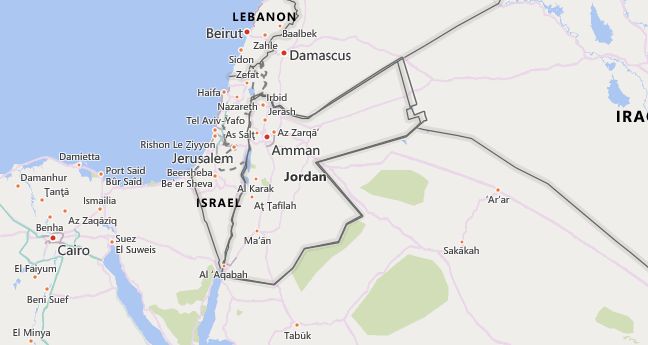There are 41 high school codes in Jordan today, according to the ACT. The full list is shown below by city, with name of each high school and the city where the school is located (based on the ACT official site). You can search a school code by pressing “Ctrl” + “F” and then type school name or 6-digit school code.
Map of Jordan
High School Codes by City
- High School Code
- 681033
- High School Code
- 681009
- High School Code
- 681012
- High School Code
- 681006
- High School Code
- 681005
- High School Code
- 681100
- High School Code
- 681007
- High School Code
- 681008
- High School Code
- 681067
- High School Code
- 681031
- High School Code
- 681032
- High School Code
- 681057
- High School Code
- 681068
- High School Code
- 681080
- High School Code
- 681061
- High School Code
- 681023
- High School Code
- 681035
- High School Code
- 681051
- High School Code
- 681030
- High School Code
- 681112
- High School Code
- 681060
- High School Code
- 681053
- High School Code
- 681040
- High School Code
- 681043
- High School Code
- 681041
- High School Code
- 681055
- High School Code
- 681056
- High School Code
- 681042
- High School Code
- 706011
- High School Code
- 681058
- High School Code
- 681050
- High School Code
- 681044
- High School Code
- 682028
- High School Code
- 681052
- High School Code
- 681111
- High School Code
- 681000
- High School Code
- 681004
- High School Code
- 681015
- High School Code
- 681014
- High School Code
- 681069
- High School Code
- 681059
The above lists CEEB codes (College Entrance Examination Board) for all accredited Jordan high schools. Please be informed that the list of high school codes in Jordan may change throughout the year. If you can’t find codes for the high schools of your interest, please write to us or come back at a later time. We will update our database soon after a new high school code is added to the country of Jordan.
Country Abbreviations
JOR is the three-letter country code of Jordan, and JO is the two-letter country code of Jordan. The two-letter suffix is used in top-level domains on the Internet as .jo.
Population
Since the 3rd millennium BC Chr. Semitic speaking population groups immigrated from Inner Arabia to Jordan in ever increasing numbers. This means that Jordan is now an Arab country. Around 12,000 Circassians were naturalized from the Caucasus in the 19th century. As a traditional, state-supporting class, the Bedouins in Jordan are still very important today.
Most tribes, however, have become sedentary or semi-sedentary. Around half of the population are refugees from Palestine and their descendants; most of them are now integrated. Overall (2017) 84% of the population live in cities. Big cities are Amman , Zerka , Irbid.
According to estimates by the Jordanian statistical office, there are still over 1.2 million Syrian and at least 300,000 Iraqi refugees in Jordan (2017).
The biggest cities in Jordan
| Biggest Cities (Residents 2015) | |
| Amman | 1 812 100 |
| Zerka | 635 200 |
| Irbid | 502 700 |
| Ar-Rusaifa | 472 600 |
| Al-Quwaisima | 296 800 |
Religion
The constitution defines Islam as the state religion, but, incorporated into the general legal framework, guarantees the right to exercise one’s religion freely and prohibits any kind of religious discrimination.
The Hashimite royal house (which can be traced back to the family of Mohammed), together with at least 95% of the population, professes Sunni Islam , the majority of which is represented in the Shafiite school of law ; the Circassians are Shiite Muslims. The majority of the presumed 1.5–3% Christians belong to the Greek Orthodox Church (Patriarchate of Jerusalem), the remainder to the Syrian Orthodox Church (Jacobites), the Armenian Apostolic Church (Armenian Church) and the Melchite Catholic Church Church (Archdiocese of Petra e Filadelfia; Melkiten), the Anglican Church (Province of Jerusalem and Middle East) and various Protestant churches and communities (especially Lutherans and Baptists). The Baha’is and the Druze are numerically small religious minorities.
Zerka
Zerka [z-], Zarqa, city in Jordan, 20 km northeast of Amman, second largest city in the country with (2015) 635,200 residents, at the same time its most important industrial location (cement works, oil refinery, etc.) on the railway line crossing the country.
Irbid
Irbid, provincial capital and trading center in north-west Jordan, 30 km southeast of the Sea of Galilee, (2015) 502 700 residents.
Jarmuk University (founded in 1976) is the center of cultural life in northern Jordan; Building materials and food industry; Road junction.

